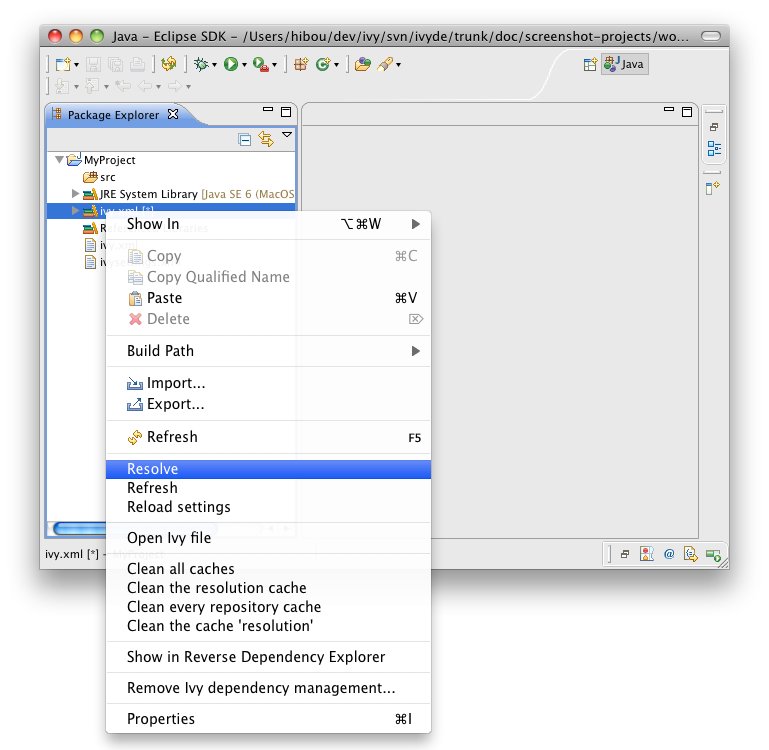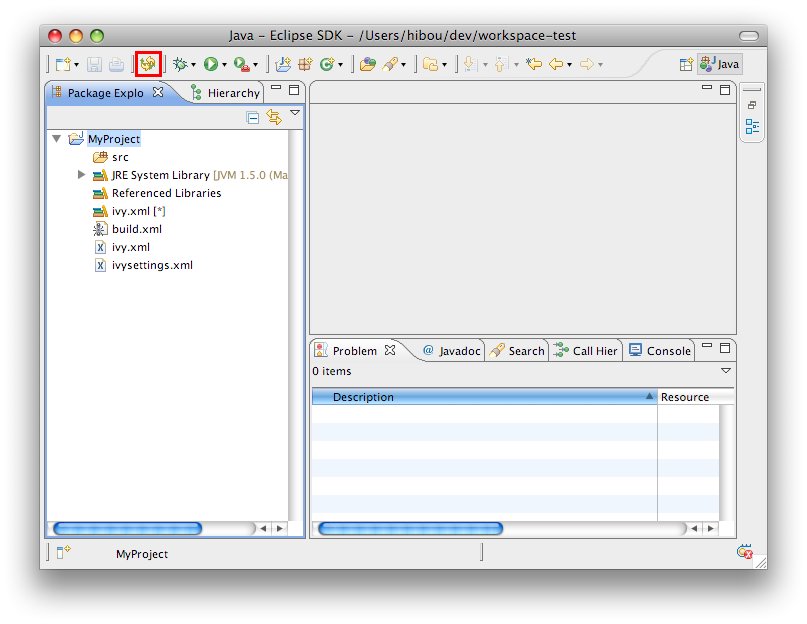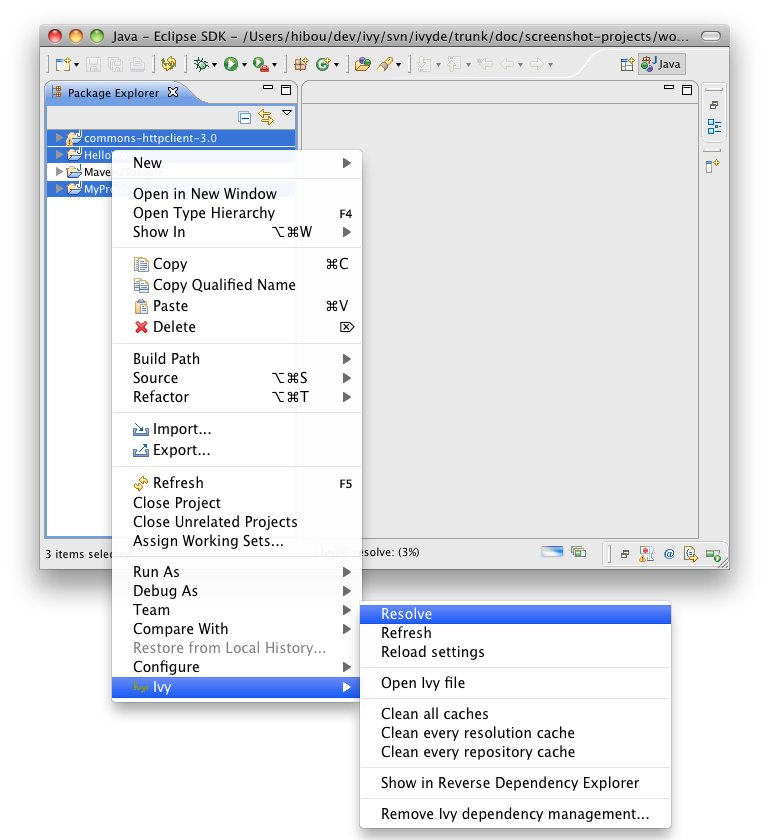- Home
- Screenshots
- Download
- License
- Documentation (2.2.0.final)
- History
- Get Involved
- Foundation
Launching resolve
You can explicitly ask for Ivy dependency resolution from your classpath container.
This command will invoke the "resolve" Ivy task and update your classpath container.
There is also a "refresh" action: this action is similar to the resolve one, but does not perform a full resolve if a report already exists in the cache. This is particularly useful if you work with Apache Ant and a command line so that you avoid two full resolves. It is also the default action performed on classpath containers when the Eclipse workspace is opened (Windows > Preferences > Ivy), in effect restoring the classpath container to its state prior to the last closing of the workspace if no other action is performed against the ivy.xml in the meantime.
And there is a "reload settings" action: by default IvyDE does reload ivy settings files each time a resolve it required. But in case the ivy settings file is remote, this take make the user experience quite slow. To work around that, you can check in the preference page the option to only load on demand, and use the "reload settings" action in the context menu.

You can also trigger a resolve (not a refresh!) of every IvyDE classpath container in the workspace via the button in the tool bar of Eclipse.

And to launch a resolve on a specified selection of projects:
- Select the projects you want to resolve in the package view,
- Open the context menu with a right click
- Choose Ivy > Resolve

Printer Friendly

